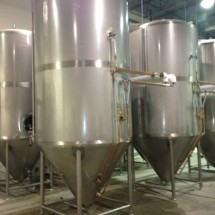Law Offices of John P. Connell, P.C.: In order to legally produce and sell beer commercially, a brewer must be authorized to operate by obtaining both national and state approval. The Alcohol and Tobacco Tax and Trade Bureau issues “TTB permits,” granting approval of a brewer’s operations on the national level. All types of commercial brewers qualify for the same TTB permit, which may be filled out online at the TTB’s website and should be done prior to applying for any state level license. The average processing time for the application is about 86 days and may include an on-site inspection of the proposed premises. After approved, the brewer must obtain a license on the state level. In Massachusetts, there are several types of state brewers’ licenses available through the Massachusetts Alcoholic Beverages Control Commission (ABCC), depending on how the brewer intends to run its business.
The most basic brewing license in Massachusetts is the Manufacturer of Wine and Malt Beverages license. Under M.G.L. ch. 138, §19, a brewer holding this license is authorized to manufacture and blend wine and/or malt beverages. Manufacturer licenses do not allow for the self distribution of its products to retailers and therefore Manufacturers must use a wholesaler to bring their product to market.
The next type of brewing license is the Farmer Brewery license. The goal of this license is to promote the development and use of local ingredients by requiring the brewery itself to grow or buy a percentage of the ingredients used in the manufacturing or blending process from farms located within Massachusetts. Yet the law does not currently quantify just how much of the ingredients produced or purchased must be from within the state. This issue – the percentage of local ingredients required to obtain this license – is still very much an open issue.
Pursuant to M.G.L. ch. 138, §19C, a farmer-brewer is authorized to sell to licensed wholesalers, manufacturers, or retailers, as well as sell by the bottle if the brewer produced those beverages. A farmer-brewer may not sell any beverages at retail that were not produced by the brewer or produced for the brewer and sold under the brewery name. Holders of farmer-brewery licenses, may apply for a Farmer Series Pouring Permit which allows the Farmer Brewer to pour on-premise for sale and sampling to the public its own brewed beer. The Farmer Series Pouring Permit follows the same process as retail pouring licenses in that they have to be approved by the local licensing authority for the town or city where the business is to be located.
The last type of brewing license in Massachusetts is the Pub Brewery license. Unlike a farmer-brewer, a pub-brewer is authorized to produce malt beverages with the use of cereal grains or hops whether those ingredients were produced or bought by the brewer locally or not. M.G.L. ch. 138, §19D. The Pub-Brewer is authorized to sell its manufactured beverages at wholesale and retail to consumers for off-premises consumption but is not allowed to “self distribute” to retailers as Farmer Brewers are authorized to do. Similar to a farmer-brewer, a pub-brewer license is not subject to the license quota. Traditionally, a Pub Brewery License, when operated in conjunction with a Section 12 On-Premise Pouring License, is thought of as more of a pub or restaurant than a working brewery. A Pub Brewery licensee seeking to operate a pouring style establishment will need to obtain the Section 12 On-Premise Pouring License, which is subject to the license quota of the town or city where the business it to be located.
When considering the pursuit of a craft beer venture, issues such as which brewing license to acquire, should be addressed early on in the process to ensure smooth sailing before the TTB and ABCC.
CONTRIBUTED BY COURTNEY MCGEE
© Law Offices of John P. Connell, P.C., 2015.

